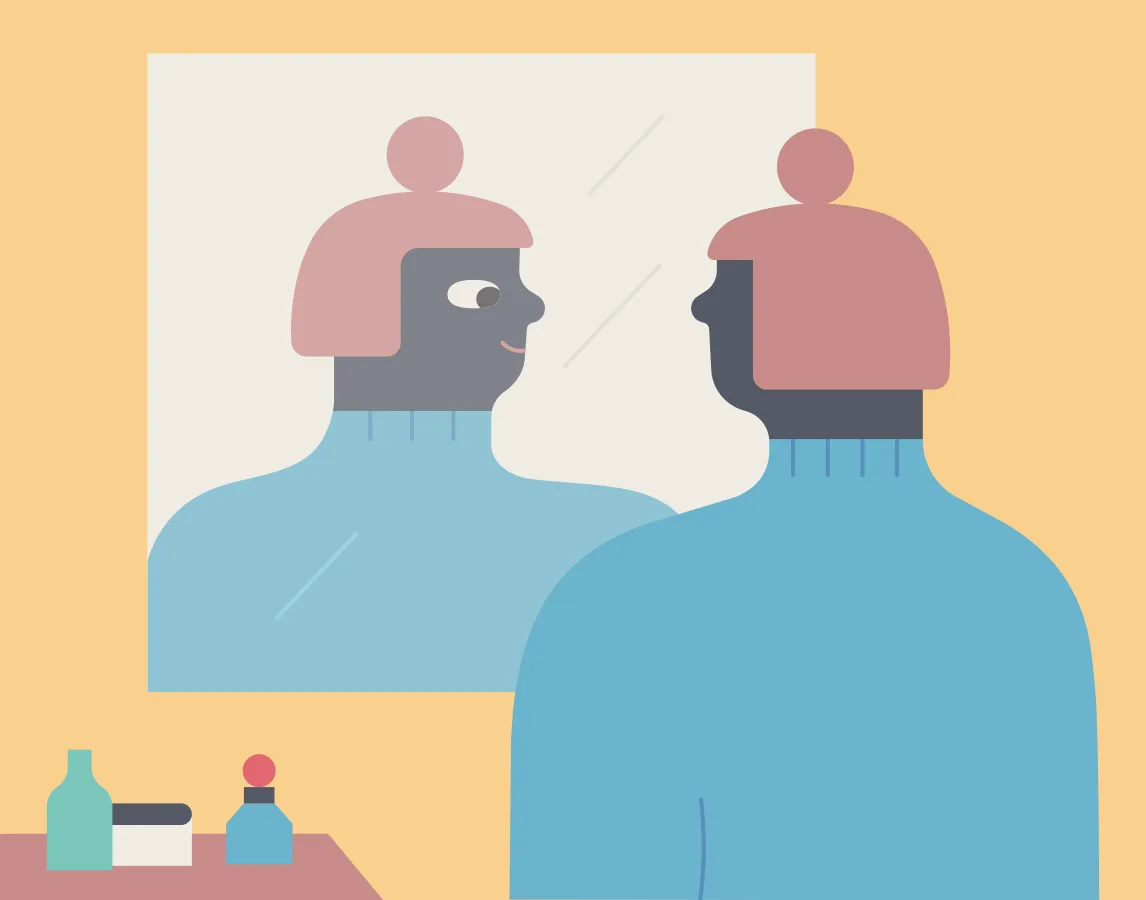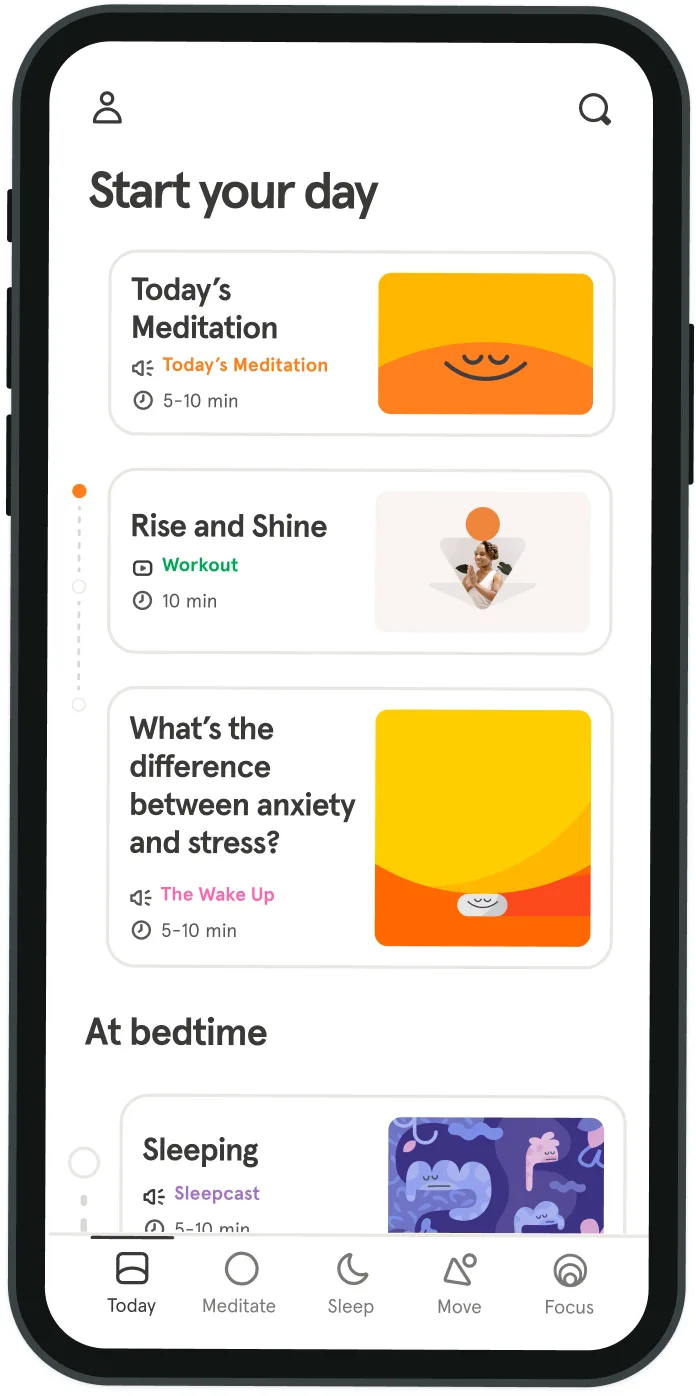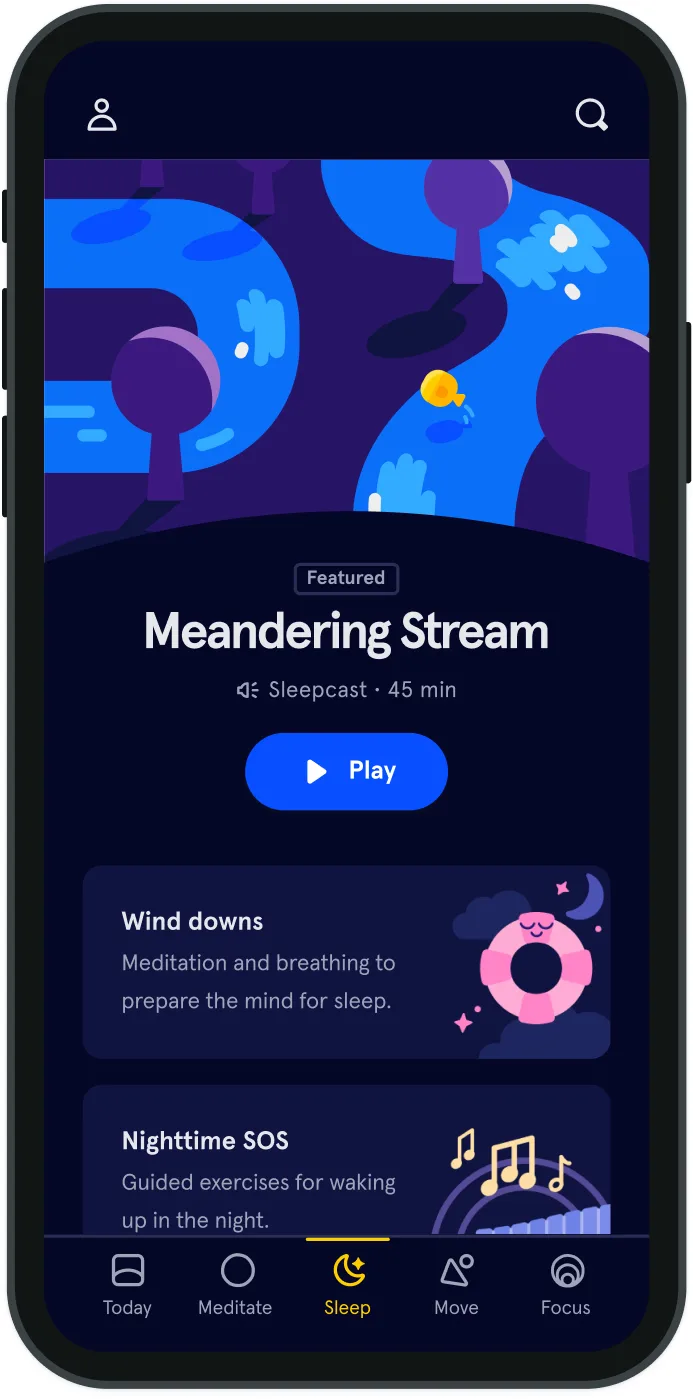How to like yourself just a little bit more
My daughter watched me in the mirror as I slipped into the sleeves of the black and white blazer.
“Mommy, that looks nice on you,” she said, head tilted against her left shoulder. “I think it’s because those colors really bring out the gray in your hair.” Ouch. Immediately, I began judging myself. Should I dye my hair? Do I look older than I am? Should I change? Hide? Cover? Deny? Nope. I’m a middle-aged woman with graying curly hair. I’ve spent a lifetime working on this self-acceptance thing and I’ve decided that even with faults and imperfections—even with all this gray hair—I am OK. This kind of awareness can bring peace, and research indicates that when we can identify and accept both our positive and negative attributes, we may be happier, healthier, and more successful.
Psychologists believe self-acceptance helps us stay emotionally stable and grounded. It allows us to feel content and confident even (and especially) when the self is less than perfect. Self-acceptance is also quite different from self-esteem, which is defined in part by how we measure our worth and value in relation to our roles and accomplishments. Self-esteem can fluctuate with our achievements, which is fine when things are going well, but tough to take when we lose a job, end a marriage, or make an embarrassing mistake. Self-acceptance, however, involves a realistic, though subjective, awareness of your strengths and weaknesses, and being satisfied with yourself, outside of others, regardless. Imperfections, flaws, foibles, and mistakes can cause great stress and anxiety in people with lower self-acceptance. Studies also show that diminished self-acceptance can threaten our psychological well-being. Without self-acceptance, we may get stuck in negative thought patterns which can contribute to mental and physical illness. Research shows that the very strategies we rely on to manage adversity—like mindfulness and gratitude—become more difficult to practice when self-acceptance is deficient. Just as we may struggle to accept our flaws and failures, a lack of self-acceptance can also make it hard to trust our success. Rather than recognizing our accomplishments as a result of our hard work and talent, people with low self-acceptance may view success as a string of unearned lucky breaks and have a tough time receiving compliments.
Fortunately, we can change this pattern. Self-acceptance can be developed and practiced daily. Self-acceptance requires a combination of three skills: emotional regulation, awareness, and introspection—the courage to look inward even when external storms are brewing. Here are three steps to self-acceptance:
1. Cultivate self-awareness.
What bugs you? What so-called shortcomings does your inner critic remind you of repeatedly? Which qualities are you trying to hide or deny or change? Can you simply recognize these things without judgment? See them without self-criticism? Perhaps the wrinkles around your eyes represent a full life—rather than an imperfection. Maybe, a mistake you made at work isn’t a sign of a larger problem or character flaw, but simply an error. You may have an easier time accepting yourself if you can practice observing without judgment. Try this: Take a deep breath and look at your hand. Notice the knuckles, the pigment, the nails. See the wrinkles, the dry skin, and maybe even hangnails too. Just notice it all. Each time you feel yourself judging those age spots or short fingers, take a breath and try to exhale the criticism. Your hands are designed to help you. They are tools. Accept them without judgment.
2. Reframe the trying times.
Managing our emotions is key to the practice of self-acceptance. It’s OK to feel upset or disappointed, but watch out for excessive self-blame and self-criticism. By taking a broader view and recognizing your humanity, you may find less to be upset about. Try this**:** Instead of focusing on a disappointment or challenge from a single perspective see if you can observe it with a new lens. Could that so-called weakness or problem instead represent a chance for growth? Is the challenge you are facing a sign of resilience rather than failure? Remember there are many ways to look at a given situation, make sure you are taking in the view from all angles.
3. Step outside the bullshit.
Self-acceptance is a kinder, softer, more authentic way of being in the world. Instead of hiding or denying some of your attributes, own them. Become introspective. Recognize that these same qualities make you unique and marvelous. It’s up to you to define how external events and outside opinions will shape you, don’t let them bring you down. Try this: Lead with self-compassion. Next time you are feeling judged, ashamed, or blamed, talk to yourself as you would a friend. Go easy. Notice what went wrong. Realize too, that everyone makes mistakes, but we are more than our imperfections. With these practices, self-acceptance can become the antidote to self-doubt, insecurity, and the endless anxiety we feel when we believe we aren’t enough. It isn’t emotional bubble wrap—you’ll still feel upset, even embarrassed at times, but you may also be more comfortable (and resilient!) in the face of adversity. Instead, you can learn to trust in your ability to cope with all that life offers—just as you are. You are good enough. Accept it.



Be kind to your mind
- Access the full library of 500+ meditations on everything from stress, to resilience, to compassion
- Put your mind to bed with sleep sounds, music, and wind-down exercises
- Make mindfulness a part of your daily routine with tension-releasing workouts, relaxing yoga, Focus music playlists, and more
Meditation and mindfulness for any mind, any mood, any goal
- © 2024 Headspace Inc.
- Terms & conditions
- Privacy policy
- Consumer Health Data
- Your privacy choices
- CA Privacy Notice
